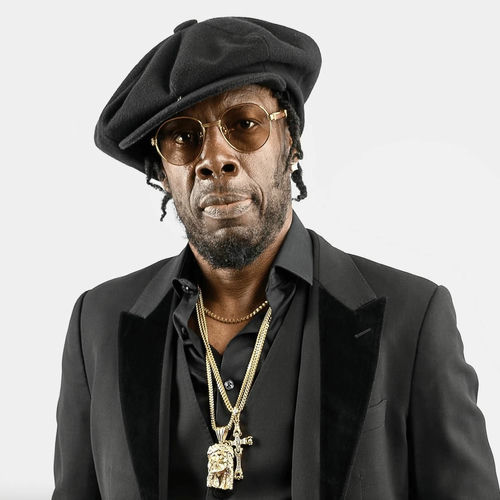Shabba Ranks
A.K.A. Rexton Rawlston Fernando Gordon
Sunrise: January 17, 1966

Shabba Ranks (born Rexton Rawlston Fernando Gordon on January 17, 1966) is a seminal figure in dancehall music, known for his rugged voice, charismatic stage presence, and his role in pushing Jamaican deejay/dancehall into the global music industry. (Wikipedia) Growing up in Seaview Gardens, Kingston, Shabba was exposed early to Jamaica’s sound system culture and grinding urban life, influences that shaped his lyrical style and persona. (Wikipedia)
Musically, Shabba Ranks built his reputation via “toasting” (the Jamaican tradition of rhythmic speech or chanting over riddims) rather than melodic singing. (Pitchfork) His gritty, staccato vocal cadence became instantly recognizable and synonymous with raw dancehall energy. (Pitchfork) In 1989 he signed with Epic Records, launching his international career. (Musician Guide) His albums As Raw as Ever and X‑tra Naked won back‑to‑back Grammy Awards for Best Reggae Album in 1992 and 1993, respectively, cementing his status as one of reggae/dancehall’s first crossover stars. (Wikipedia) Hits like “Mr. Loverman,” “Ting A Ling,” “Trailer Load a Girls,” and “Housecall” further extended his reach beyond Jamaica. (Wikipedia)
Yet Shabba’s journey hasn’t been without controversy. In 1993 he faced major backlash after remarks made on a British TV show, where he defended homophobic lyrics and suggested that scripture supported persecution of homosexuals. (Wikipedia) The remarks deeply impacted his relationship with international audiences and record labels, with Sony Music severing ties and bookings being canceled. (Wikipedia) Shabba later offered apologies, but the episode left a lasting stain on his public image. (Wikipedia)
Despite that, his legacy in dancehall is formidable. He is often dubbed the “Dancehall Emperor,” a title that reflects his influence in styling, delivery, aesthetic swagger, and the boundary he pushed between Jamaican dancehall and global music circuits. (Jamrock Experience) His influence reaches beyond his era: the “Dem Bow” riddim (associated with Shabba’s 1990 track “Dem Bow”) is widely recognized as a foundational rhythmic template that helped shape the development of reggaetón. (Wikipedia)
In later years, Shabba has maintained a quieter public profile, occasionally releasing music, collaborating with other artists, and making guest appearances. (Wikipedia) He was honored with a Heritage Award in 2021, receiving a hero’s welcome in Jamaica, a sign that despite ups and downs, his contributions are still deeply recognized by his home country. (Silver Star Sound)